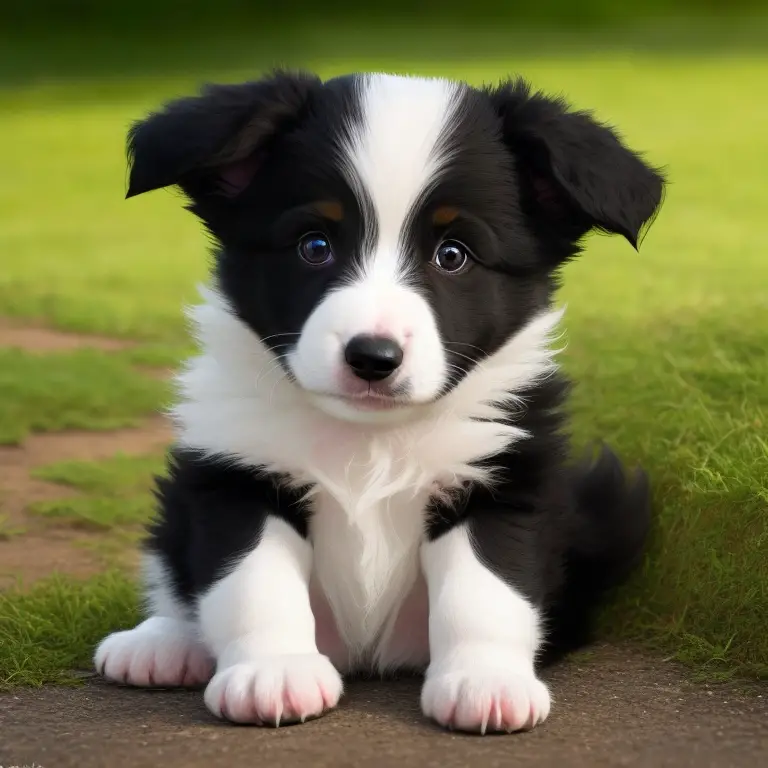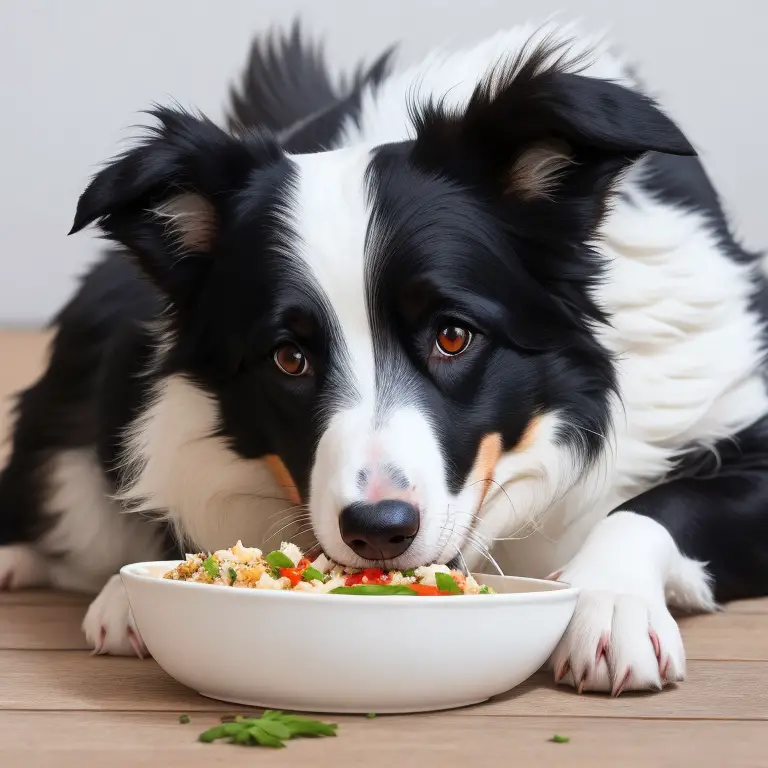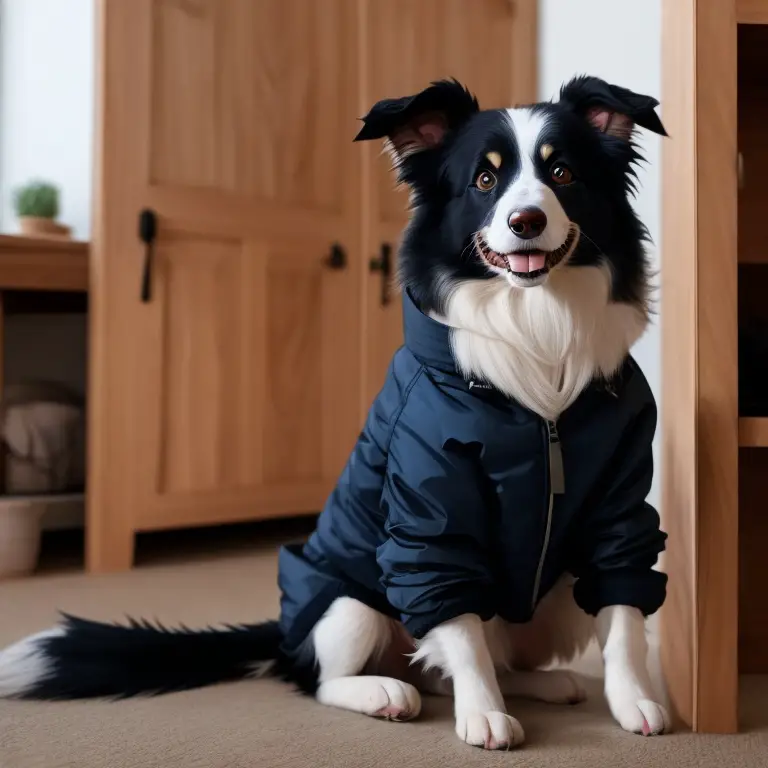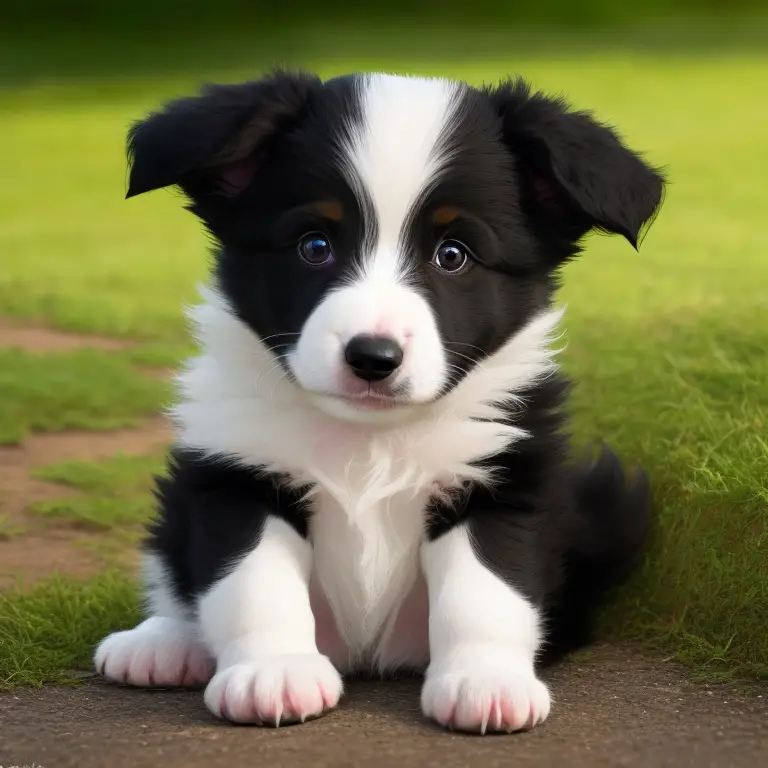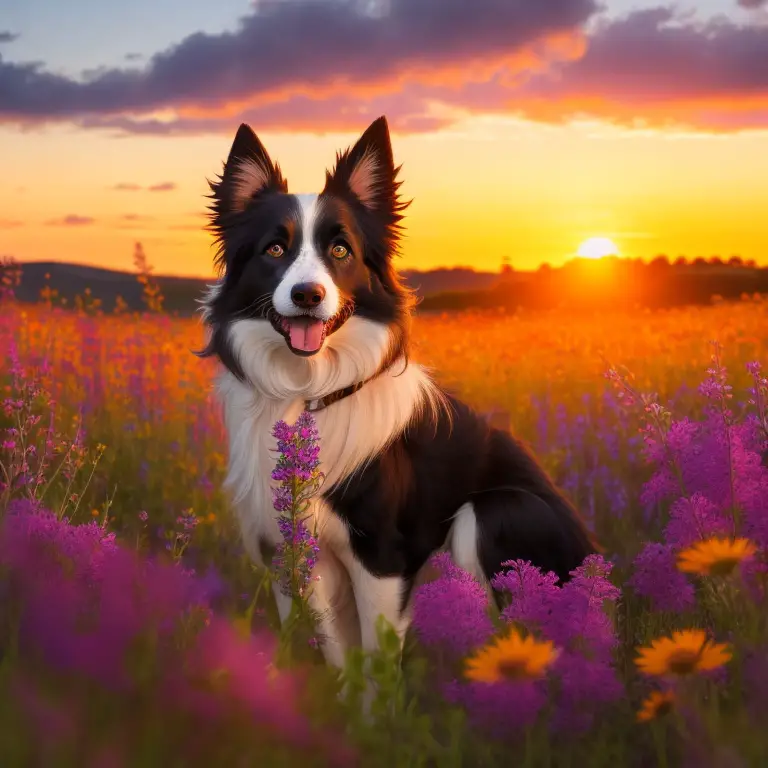Are Border Collies Good Guard Dogs?
Have you ever wondered if Border Collies can make good guard dogs? Known for their intelligence and work ethic, these dogs were bred to herd livestock, but are they capable of protecting their owners?
As an expert copywriter, I’ve researched the history and characteristics of Border Collies, as well as the traits and training necessary for a good guard dog.
In this article, I’ll explore if Border Collies have what it takes to be a reliable guard dog and discuss alternatives that might be better suited for the role. Buckle up and let’s dive in!
| Criteria | Yes: Border Collies make good guard dogs | No: Border Collies don’t make good guard dogs |
|---|---|---|
| Intelligence | ✔️ Border Collies are highly intelligent and can be trained for almost any task, including guarding their home and family. | ❌ Border Collies prioritize herding and chasing, and may lack the necessary territorial instincts to guard their home and family. |
| Protective Instincts | ❌ Border Collies are not known for their protective instincts, and may not be territorial enough to guard their home and family. | ✔️ Border Collies are very loyal and can be protective of their home and family, especially if they are properly trained and socialized. |
| Size | ❌ Border Collies are medium-sized dogs, and may not have the imposing size or physical strength of breeds that are commonly used for guard duty. | ✔️ While smaller than some breeds, Border Collies are agile and fast, and can be trained to fend off intruders and protect their home and family. |
| Temperament | ✔️ Border Collies are typically alert and responsive, and can be trained to recognize and respond to potential threats. | ❌ Border Collies can be sensitive and anxious, and may not have the temperament needed for successful guard duty. |
What is a Border Collie?
History of Border Collies
Let’s dive into the history of Border Collies. Originally bred in the Scottish and English border region, these herding dogs were created to work with livestock in harsh terrain.
The word “collie” actually comes from the Scottish word for sheepdog, and Borders are known for their exceptional ability to control cattle and sheep.
Border Collies became widely popular in the 19th century due to their intelligence and ability to be taught commands, as well as their tenacity and hard-working nature. Today, they are used in a variety of roles from herding to agility to search and rescue work.
Characteristics of a Border Collie
A Border Collie is a working dog breed that originated in the Scottish borders region. They are highly energetic, intelligent, and loyal dogs with exceptional herding abilities.
Here are some of the key characteristics of a Border Collie:
- High Energy – Border Collies are incredibly active and require ample exercise and stimulation to lead a happy and healthy life. They need opportunities to run, play, and work to channel their abundant energy positively.
- Trainability – This breed is highly intelligent and amenable to training. They can grasp commands quickly and excel in obedience trials, agility, and other canine sports.
- Herding Instinct – Border Collies have a strong herding instinct, which means they will nip and herd people or objects if proper training and boundaries are not established.
- Affectionate – Despite their intense focus on work, Border Collies are affectionate and loyal to their owners. They crave attention and bonds with their human families.
- Grooming needs – Border Collies have moderate shedding, double-coated fur that requires frequent brushing to prevent matting and tangles.
Border Collies are excellent dogs with many admirable qualities, but they may not be the best choice for a guard dog. In the next section, we will discuss the traits of a good guard dog to help you make the right decision for your specific needs.
What Makes a Good Guard Dog?
Traits of a good guard dog
When it comes to guard dogs, certain traits are essential. Firstly, solid temperament is crucial.
A guard dog should be able to remain calm in different situations and not get agitated easily.
Secondly, a good guard dog should be loyal and protective of its family. This characteristic is what makes them excel in their duties.
Thirdly, physical strength and agility are necessary.
A guard dog should be capable of handling intruders and warding them off when necessary. Fourthly, intelligence and obedience are traits that a good guard dog must possess.
They must be able to follow commands and make sound decisions in difficult situations.
Lastly, socialization is vital. A good guard dog must undergo training that teaches them how to interact with people and animals they encounter in their line of duty.
These traits are crucial in determining whether a dog is fit to be a guard dog or not.
Without them, a dog will not be effective in its role, and its owners’ safety will be compromised.
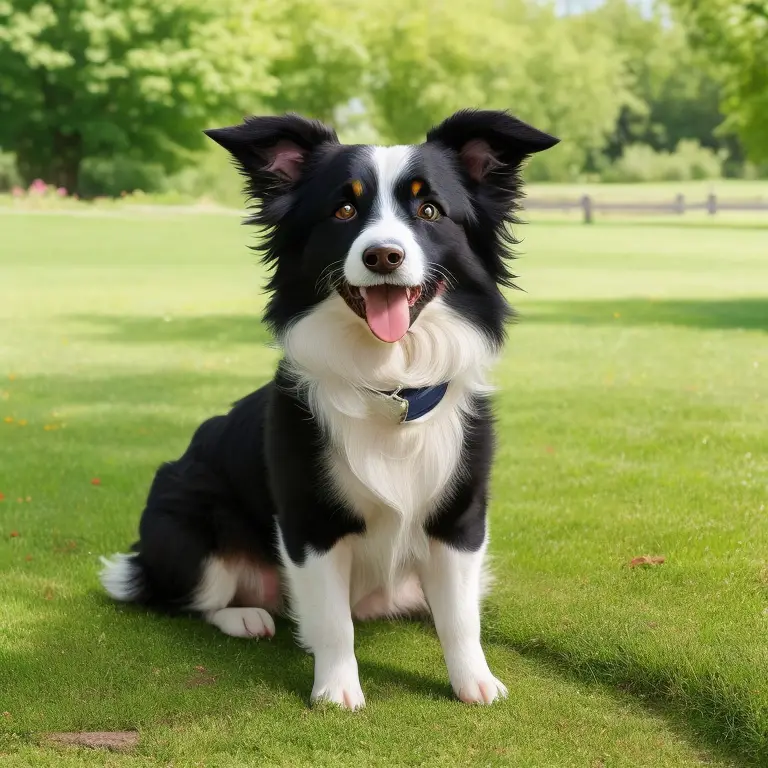
Training for guard dogs
So, you’re interested in training a dog as a guard dog, huh? Well, there are certain qualities that a good guard dog should have, and training plays a crucial role in shaping these qualities.
First off, the key traits of a good guard dog include obedience, loyalty, and a protective instinct.
To develop these traits, you can use positive training techniques that help build a strong bond between you and your dog. Consistency in training and ample socialization with people and other dogs can help your dog feel more confident and comfortable in its role as a guard dog.
Additionally, specific training methods can teach your dog to recognize and respond to various threats.
These can include anything from barking to alert you of suspicious activity to using its physical abilities to protect you from physical harm. But it’s important to remember that not all dogs are cut out for guard dog duties.
Some breeds are better suited for this role than others due to their inherent traits and abilities.
And even among the suitable breeds, not all individuals will have the necessary temperament or drive for guard dog work. So, it’s important to do your research and work with a professional trainer to determine if your dog is a good fit for this role and to ensure that its training is effective and humane.

Can Border Collies be Good Guard Dogs?
Border Collies and their nature
Border Collies are known for their intelligence, high energy, and incredible work ethic. They were originally bred as herding dogs, and therefore possess a strong instinct to protect their flock.
However, while Border Collies may have the necessary traits to be good guard dogs, there are some challenges to consider.
Border Collies tend to be highly focused on their work, which may make them less attuned to their surroundings. Unlike other breeds such as German Shepherds or Rottweilers, they may not be as naturally protective of their owners or property.
Additionally, they are an active breed that requires lots of mental and physical stimulation, which may make it hard for them to be confined to a stationary location for long periods.
That being said, with proper training and socialization, Border Collies can make loyal and dedicated guard dogs. They are quick learners and have excellent problem-solving skills.
It’s important to note, however, that they may not be the best choice for every situation.
Overall, it’s important to consider a variety of factors when deciding on a guard dog, including the dog’s temperament, training, and the specific environment in which they’ll be working. While Border Collies may have the potential to make good guard dogs, there may be other breeds better suited for certain situations.
Cons of using Border Collies as guard dogs
Border Collies are known for their intelligence, agility, and obedience, but they are not suitable for guard dog duties. Here are some cons of using Border Collies as guard dogs:
- ) Territorial issues: Border Collies are not naturally possessive or territorial. They may not perceive a stranger as a threat and may even welcome them.
- ) Lack of aggression: Border Collies are not aggressive breeds, which is a trait essential for a good guard dog. They are sociable and friendly and cannot act as an effective deterrent to intruders.
- ) Herding Instincts: Border Collies have a natural herding instinct that drives them to gather, control, and move animals. This impulse often means they will try to herd intruders rather than scare or attack them.
- ) Size: While Border Collies are athletic and quick, they are not very large. Their small size makes them vulnerable in confrontational situations and less intimidating to intruders.
If you are looking for a guard dog, Border Collies are not the best choice. Other breeds are more suited to guard duties with natural protection instincts, aggressive behaviour, and large size.
Alternatives to Border Collies as Guard Dogs
Breeds recommended for guard dog duties
When it comes to choosing a breed of dog for guard duty, it is important to consider their temperament, strength, and loyalty. While Border Collies may not be the best option for guard dog duties, there are other breeds that are well suited for the job.
Here are some of the breeds recommended for guard duty:
- German Shepherd: This breed is well known for its intelligence, loyalty, and strength. They make excellent guard dogs as they are naturally protective and can be trained to respond to specific commands.
- Rottweiler: Rottweilers are known for their bravery and are naturally protective of their family. They are also very obedient and can be trained to be excellent guard dogs.
- Doberman Pinscher: This breed is highly intelligent and has a natural instinct to protect their owner. They are well suited for guard duty as they are loyal, obedient and will protect their territory from intruders.
- Boxer: Boxers are strong, agile, and protective dogs. They are also courageous and fiercely loyal to their family, making them excellent guard dogs.
While these breeds may be well suited for guard duty, it is important to note that proper training is crucial. A well-trained guard dog can be an asset to your home and family’s safety, while an untrained or improperly trained dog can be a danger to both yourself and others.
It is also important to keep in mind the potential drawbacks of having a guard dog, such as the increased responsibility of ownership and the potential legal liabilities.
Consider all factors before choosing a breed for guard duty.
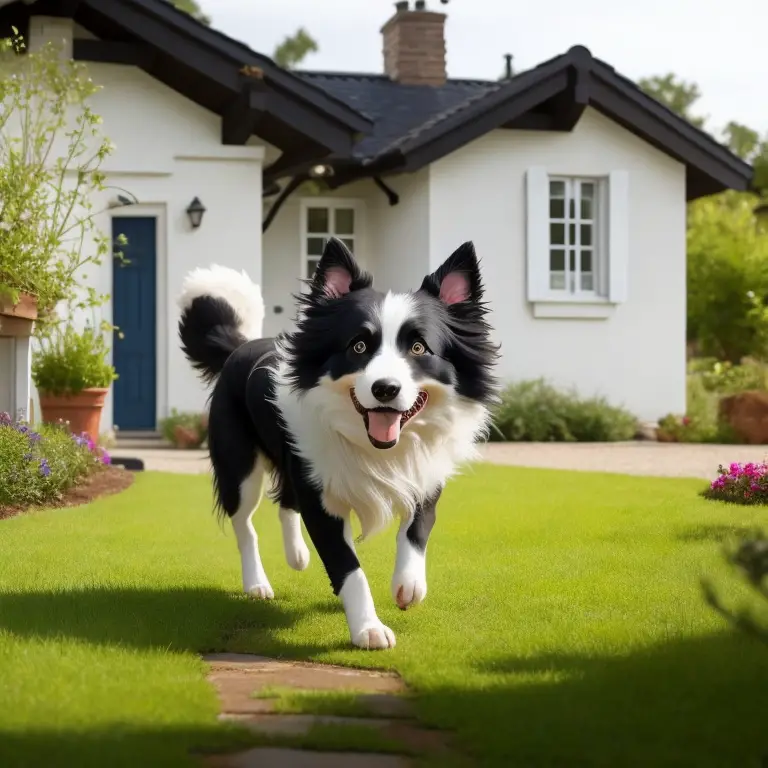
Pros and cons of different guard dog breeds
When it comes to selecting a guard dog, there are various breeds to choose from. Each breed comes with its strengths and weaknesses.
Here are some of the pros and cons of different guard dog breeds:
- German Shepherds: German Shepherds are one of the most popular breeds used for guarding purposes. They are well-regarded for their intelligence, loyalty, and size. They can be trained to protect their owners and their property and are used by law enforcement agencies worldwide. However, their size and strength require consistent training to avoid aggression.
- Rottweilers: Rottweilers are known for their impressive size and strength, and their protectiveness towards their owners. They are loyal and reliable protectors and commonly used by the military and law enforcement agencies. However, they might display unwanted aggression if not trained well.
- Doberman Pinschers: Doberman Pinschers are intelligent, loyal, and alert, making them ideal guard dogs. They are fast learners and can be trained to protect their owners and property. However, they may become overly protective and aggressive without consistent training and socialization.
- Bullmastiffs: Bullmastiffs are large and powerful dogs that are known for their natural protective instincts. They are loyal and protective of their owners, making them great guard dogs. However, they can be stubborn and require obedience training to prevent aggression towards strangers.
- Boxers: Boxers are protective, loyal, and energetic dogs that make great family pets and guard dogs. They are intelligent, trainable, and are naturally suspicious of strangers. However, they require regular exercise and can become destructive or aggressive if not adequately exercised.
Selecting the right breed for guard dog duties depends on your specific situation and needs. Adequate training and socialization are crucial factors in shaping your dog’s guarding ability.
It is essential to ensure that you can provide the necessary time, effort, and resources needed to keep your guard dog adequately trained and healthy.
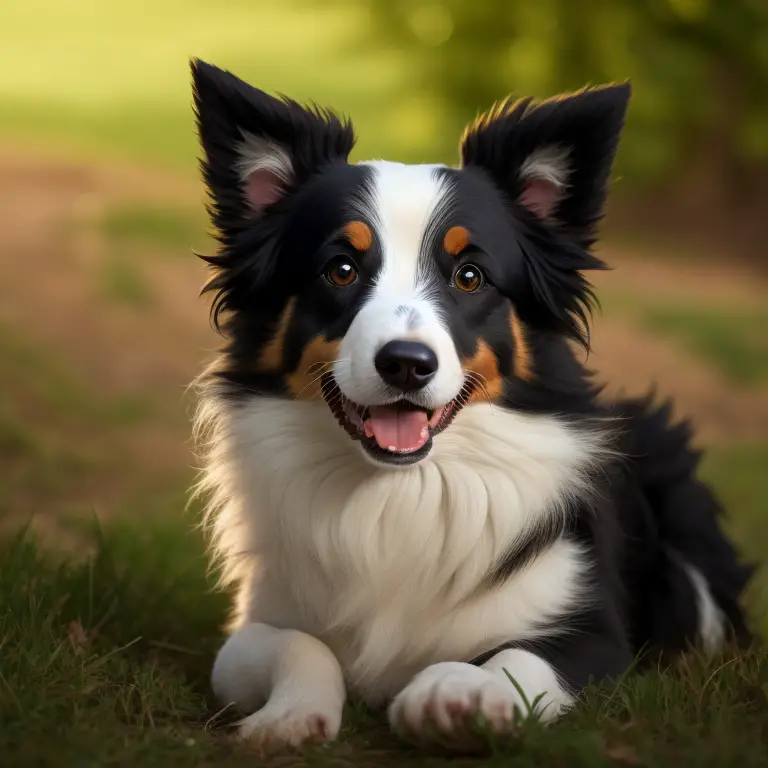
Conclusion
While Border Collies are highly intelligent and possess many innate abilities that make them well-suited for various tasks, they are not the best choice for guard dog duties. Their natural instinct to herd and excitable nature makes them prone to barking, which may not be ideal for guarding purposes.
Additionally, they require a lot of physical and mental stimulation to thrive.
Therefore, opting for a breed specifically bred for guard work may be a better decision. It is vital to choose a dog that fits your lifestyle and requirements to ensure a successful relationship with your pet.
With proper training and the right breed, you can have a loyal and dependable protector by your side.


